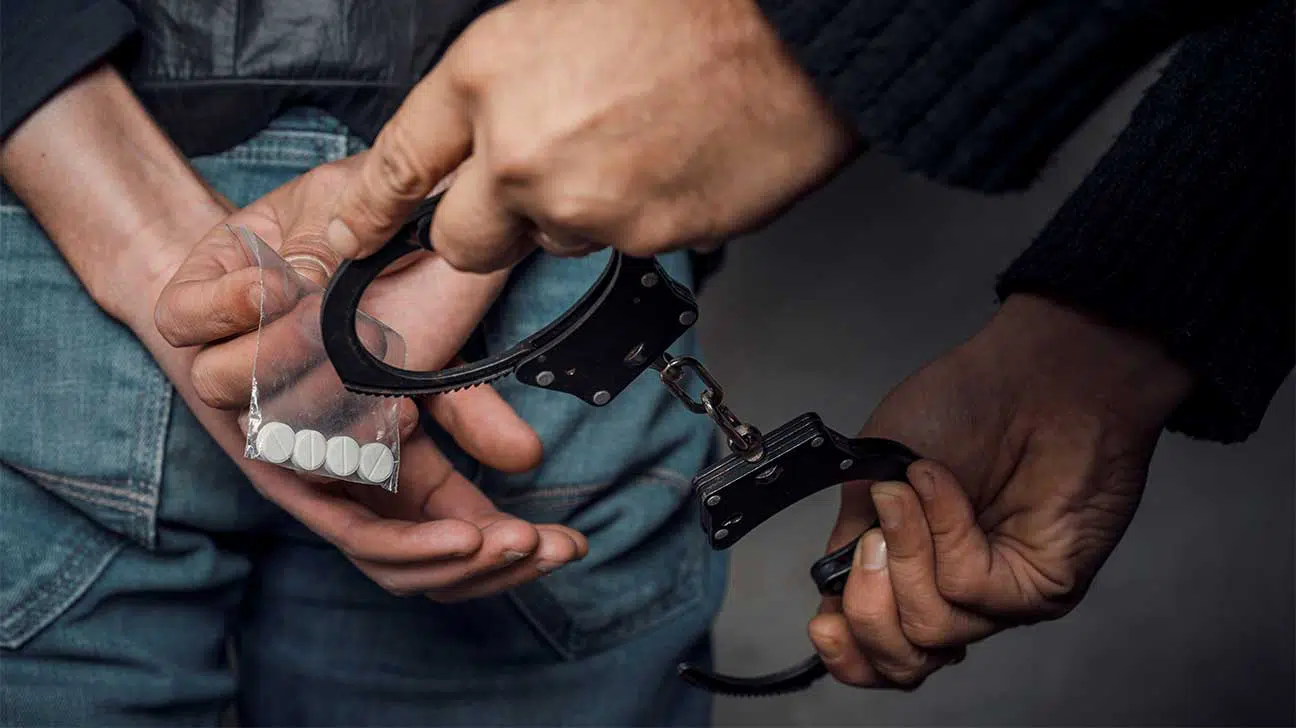
Drug possession in the United States has traditionally been a criminal offense, however, some states are moving toward decriminalizing drug possession for certain types of drugs.
Decriminalizing drug possession means making it not illegal or punishable by law.
According to the Drug Policy Alliance, a number of states have already decriminalized possession of small amounts of marijuana — following the legalization of medical marijuana in most states and recreational marijuana in some states.
However, in late 2020, Oregon became the first state to decriminalize possession of any illicit drugs.
List Of States That Have Decriminalized Drug Possession
As of the writing of this article (late 2021), Oregon is the only state to have decriminalized drug possession.
The following states/provinces have decriminalized recreational use/possession of marijuana:
- Alaska
- Arizona
- California
- Colorado
- Connecticut
- Guam
- Illinois
- Maine
- Massachusetts
- Michigan
- Montana
- Nevada
- New Mexico
- New Jersey
- New York
- Oregon
- South Dakota (pending lawsuit)
- Vermont
- Virginia
- Washington
- Washington, D.C.
Effects Of Decriminalizing Drug Possession
Removing charges and corresponding punishments for drug charges could potentially have a number of effects on the person in possession of drugs.
Legal Effects
Removing fines, jail time, and other legal punishments for drug-related offenses is a hotly debated topic.
Some people believe it will increase drug-related crime and drug addiction rates, while others argue it will have the opposing effect.
Legal effects of decriminalizing drug possession include:
- eliminating legal penalties (fines and jail/prison time) for drug use or possession
- removing penalties for possession of drug equipment (paraphernalia)
- no penalties for the sale of drugs on a small scale
Political advocates in favor of decriminalizing drug crimes believe it could:
- reduce federal spending in prisons
- place emphasis on getting help for those involved in drug crimes, who may benefit more from rehabilitation and resources than from a prison or jail sentence
- help eliminate stigma, which remains a large barrier to managing the drug use crisis
- allow for harm reduction practices, which offer evidence-based solutions, including drug checks, safe use practices, and medication-assisted treatment
Health Effects
Many people involved in drug-related crimes have a substance use disorder — or an addiction.
Because of this, they may need a recovery program that can help them learn to manage substance abuse issues, work through related mental health issues, and enter sobriety.
When people who have a substance use disorder are given a jail or prison sentence and other penalties for a non-violent drug crime, they are not getting the help they need.
This can lead to a whole host of effects on their health. They may experience withdrawal syndrome while in prison or jail, and many correctional facilities are not equipped to treat this.
While in prison, they may be sober due to their inability to access drugs. When they are released, they may seek drugs right away, but their tolerance will be very low. This means their overdose risk is highly increased.
In contrast, decriminalizing drug crimes could mean more people can access the care they need. Instead of getting drug charges, they could be connected to treatment resources.
Potential health effects of decriminalizing drug possession for people with addiction:
- decrease drug dependency rates overall due to increased access to treatment resources
- increase safe drug practices due to reduced stigma — eventually lowering overdose rates
- lower the risk of drug-linked communicable diseases such as HIV
Will Decriminalizing Drug Possession Increase Drug Addiction Rates?
A common, understandable fear is that drug addiction and related crimes will increase if all punishment is removed for drug use and possession.
However, research on this front is promising. That is, other countries which have removed drug criminalization have seen positive results.
For example, Portugal decriminalized drug possession, and recent drug use rates overall are now far lower than those in the U.S.
The Netherlands has slowly changed its drug policy over the course of the last three decades and saw that drug use prevalence rates were lower post-decriminalization than pre-decriminalization.
There is no way to predict whether eliminating penalties for drug possession or use will increase drug addiction rates, but those countries that have instilled this policy have seen decreased drug use rates overall.
Learn About Drug Treatment Options
For first offenses or non-violent drug charges, you may be able to seek rehabilitation instead of sentencing depending on your state of residence and other personal factors.
Learn more about drug courts and substance abuse treatment options today. Call our helpline to speak to a treatment specialist.
Addiction Resource aims to provide only the most current, accurate information in regards to addiction and addiction treatment, which means we only reference the most credible sources available.
These include peer-reviewed journals, government entities and academic institutions, and leaders in addiction healthcare and advocacy. Learn more about how we safeguard our content by viewing our editorial policy.
- Drug Policy Alliance — Three Lessons the Netherlands Learned After Decades of Evolving Its Drug Policy
https://drugpolicy.org/blog/america-take-note-three-lessons-holland-learned-after-decades-evolving-its-drug-policy - Drug Policy Alliance — Drug Decriminalization
https://drugpolicy.org/issues/drug-decriminalization - UNAIDS — Decriminalization works, but too few countries are taking the bold step
https://www.unaids.org/en/resources/presscentre/featurestories/2020/march/20200303_drugs - U.S. News & World Report — Where is Marijuana Legal? A Guide to Marijuana Legalization
https://www.usnews.com/news/best-states/articles/where-is-marijuana-legal-a-guide-to-marijuana-legalization


